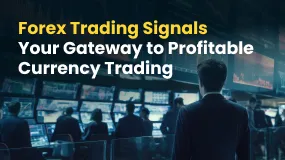简体中文
繁體中文
English
Pусский
日本語
ภาษาไทย
Tiếng Việt
Bahasa Indonesia
Español
हिन्दी
Filippiiniläinen
Français
Deutsch
Português
Türkçe
한국어
العربية
Inside the Market: Who’s Buying, Who’s Selling, and Why It Matters
Abstract:Understanding who takes part in the financial markets is key to knowing how and why prices move. Knowing who these people or organisations are can help investors feel more confident and better understand the effects of global news on market movements.

Understanding who takes part in the financial markets is key to knowing how and why prices move. Each trade, whether big or small, happens because someone is buying while someone else is selling. Knowing who these people or organisations are can help investors feel more confident and better understand the effects of global news on market movements.

One of the largest and most powerful groups in the market is the interbank market, made up of major commercial banks and securities firms. These institutions are responsible for around 40% to 50% of all foreign exchange trading worldwide. Because they trade such large volumes, they benefit from the lowest transaction costs, or “spreads”, in the market. Their size and influence put them at the top of the financial trading world.
Another major player is the central bank. Central banks manage a countrys money supply, interest rates, and inflation. They also hold large amounts of foreign currency, which they use to keep their local economies stable. Their involvement in the market is not for profit but for national economic stability, which gives them a strong presence in the foreign exchange world.
Investment management companies also play a key role. These firms handle large amounts of money on behalf of clients, such as individuals, companies, or pension funds. When they invest in foreign assets, they need to buy and sell different currencies to complete those deals. While part of their activity is based on practical needs, many also trade currencies to take advantage of market trends and try to earn profits.
The market also includes a growing number of retail traders, that is, individual investors who use banks or online brokers to make trades. Their trades are usually small and focused on speculation rather than actual currency exchange. They do not take physical delivery of money but instead try to earn from price changes. Even though they are smaller players, their combined actions can still affect the market, especially during periods of high activity.
Finally, there are non-bank foreign exchange companies. These firms help people and businesses move money across borders or exchange currencies for everyday needs. Unlike banks, they do not trade for speculation. Their customers often need to receive or send money in different currencies, so the transactions involve the physical delivery of funds. They serve an important role, especially in global trade and personal finance.
Each of these groups, from powerful banks to everyday individuals, plays a unique part in keeping the financial markets running. By understanding who they are and what drives them, traders and investors can make more informed decisions and better navigate the complex world of finance.

Disclaimer:
The views in this article only represent the author's personal views, and do not constitute investment advice on this platform. This platform does not guarantee the accuracy, completeness and timeliness of the information in the article, and will not be liable for any loss caused by the use of or reliance on the information in the article.
Read more

Forex Success Stories: Lessons You Can Use to Win
There can be many ups and downs even for the world’s best forex traders. However, they remain undeterred in their vision to overcome the challenges that come their way. That’s why they form part of forex success stories that continue to inspire generations. One can inherit some lessons to be among successful currency traders. In this article, we will be sharing the lessons you can use to be successful in forex trading.

Forex Trading Signals - Your Gateway to Profitable Currency Trading
Want actionable forex trade recommendations or ideas for currency pair purchase or sale? Forex trading signals provide you with the same. Generated by professional traders, algorithms or trading systems, these signals help traders make informed decisions. Learn more about in this in-depth guide.

Top 5 Day Trading Forex Strategies That Can Help Elevate Your Wealth
Want to enjoy the thrill of forex day trading, where you open and close currency pair positions within the same day? Want to benefit from small market movements while avoiding overnight funding expenses? You need to understand day trading forex strategies. In this article, we will inform you about these and their implications.

Exploring the Benefits of Forex Investments
The Indian forex market is $60 billion strong, courtesy of the belief that it yields significant returns for investors over time. The visually impressive technical analytic tools give investors an insight into the market behavior. Assessing it through varying currency price movements helps them take an informed call on position and account sizes. Explore this article to know the benefits of forex investments in greater detail.
WikiFX Broker
Latest News
Euro zone inflation holds steady at higher-than-expected 2% in July
Forex Success Stories: Lessons You Can Use to Win
Scam Alert: FCA Issued Warning! Check the List of Unauthorized Brokers Below!
FCA Forex Trading Regulations Explained – What Every Trader and Broker Must Know
FIBO Group: A Closer Look at Its Licenses
Making Money with Forex Weekend Trading
FCA Issues New Alerts Against Unlicensed Financial Platforms, Including Clone Scams
The Untold Story In Today's Jobs Report: The Unprecedented Purge Of Illegal Alien Workers
Aetos relinquishes FCA license to focus on Australia, offshore
Scam Surge in Sarawak: Losses Soar to RM77.7 Million in Just 7 Months
Currency Calculator


